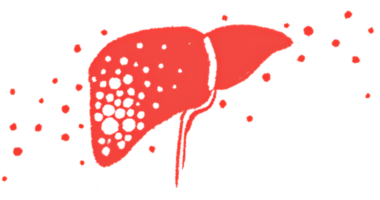coreHEM Results Lead to Joint Effort to Create Tool for Assessing Mental Health in Gene Therapy

A publicly available, patient-reported outcome measure is being jointly developed by Green Park Collaborative (GPC) and the National Hemophilia Foundation (NHF) to evaluate the effect of gene therapy on the mental health outlook of people with hemophilia type A and type B.
The collaboration follows work completed in coreHEM, an NHF-funded initiative launched in 2017 to determine a core set of outcomes to assess efficacy, safety, comparative effectiveness, and value for use in clinical studies of gene therapy in hemophilia. A core outcome set is a minimum set of results that should be measured and reported in all clinical trials for a specific condition.
In addition to frequency of bleeds, factor activity level, chronic pain, and healthcare system utilization, the multi-stakeholder effort — led by GPC, the NHF, and McMaster University in Ontario, Canada — also included a mental health outcome.
Called “coreHEM: Developing Comparative Effectiveness Outcomes for Gene Therapy in Hemophilia,” the final report defines that outcome as a patient’s psychological status — positive and negative — in association with having hemophilia or with hemophilia treatment. It also can be defined as related to the act of making an irreversible treatment decision, or the effect of gene therapy in curing the disease.
No measures exist to effectively evaluate mental health outcomes in gene therapy, an experimental technique that uses genes or genetic material to treat or prevent disease. That’s where the latest project comes in.
“Developing a new instrument to measure the transformative potential of gene therapy on an individual’s overall mental health, whether positive or negative, will further enable our understanding of the entire spectrum of functional and social impact of living with hemophilia,” Mark Skinner, co-investigator of the coreHEM study, said in a press release.
Dawn Rotellini, interim CEO at NHF, said mental health in the bleeding disorders community has always been priority.
“As we move toward enhanced and innovative treatments in hemophilia it will become imperative to measure how the community responds and how NHF can support them,” Rotellini said. “We are excited to continue our partnership with the Green Park Collaborative to better serve the bleeding disorders community.”
Experts and stakeholders participating in coreHEM included patients, clinicians, payers, health technology assessment groups, regulators, and life sciences companies. Based on participant feedback, the charge now is to create a consensus set of suggested measures and instruments to be used for assessment of the recommended core outcomes. The tool for mental health will be designed for patients ages 15 and older.
Hemophilia is caused by a genetic defect that leads to low levels or the absence of certain clotting factors necessary for effective bleeding control. To control disease symptoms, patients must receive routine injections of the missing factors. Such a rigorous therapy schedule can greatly affect quality of life. Gene therapy, which continues to be studied, has the potential to reduce or eliminate many of the burdens of the disease.
A Center for Medical Technology Policy initiative, the GPC is a multi-stakeholder forum for developing condition and technology-specific study design recommendations to guide creation of evidence needed to inform clinical and payment decisions.
Through research, education, and advocacy, the nonprofit NHF works to find better treatments and ultimately cures for inherited bleeding disorders.






